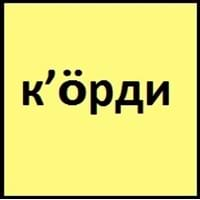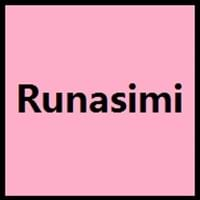Kurdish and Quechua
Countries
Iraq, Kurdistan
Argentina, Bolivia, Chile, Colombia, Ecuador, Peru
National Language
Azerbaijan, Georgia, Iran, Iraq, Syria, Turkey
Bolivia, Ecuador, Peru
Second Language
Not spoken in any of the countries
Not spoken in any of the countries
Speaking Continents
Middle East
South America
Minority Language
Not spoken in any of the countries
Not spoken in any of the countries
Regulated By
Not Available
Not Available
Interesting Facts
- The vocabulary in Kurdish is of Iranian origin.
- In the middle East, Kurdish is the fourth largest ethnic group.
- One of the most widely spoken indigenous language in the America is Quechua.
- Quechua language has borrowed many words from Spanish.
Similar To
Farsi Language
Not Available
Derived From
Not Available
Not Available
Alphabets in
Kurdish-Alphabets.jpg#200
Quechua-Alphabets.jpg#200
Scripts
Arabic, Cyrillic, Latin
Latin
Writing Direction
Right-To-Left, Horizontal
Not Available
Language Levels
Not Available
Hello
Silaw
Rimaykullayki
How Are You?
Tu çawa yî?
Allillanchu
Good Night
Şev xweş
Allin tuta
Good Evening
Evare baş
Wuynas nuchis
Good Afternoon
Nee-wa-rowt bash
Wuynas tardis
Good Morning
Bayanit bash
Wuynus diyas
Please
Bê zehmet
Not Available
Sorry
Bibûre
Pampachaykuway
I Love You
Ez te hez dikem
Kuyayki
Excuse Me
Bê zehmet
Pampachaway
Dialect 1
Northern Kurdish
Ancash
Where They Speak
northern Iraq, northern Syria, northwest Iran, southeast Turkey
Peru
Dialect 2
Central Kurdish
Huánuco
Where They Speak
Iraq, Kurdistan Province of western Iran
Peru
Dialect 3
Southern Kurdish
Yaru
Where They Speak
Eastern Iraq
Peru
Native Name
Kurdí / کوردی / к’öрди
Qhichwa
Alternative Names
Not Available
North La Paz Quechua
French Name
kurde
quechua
German Name
Kurdisch
Quechua-Sprache
Pronunciation
Not Available
Not Available
Origin
16th century CE
16th Century
Language Family
Indo-European Family
Quechumaran Family
Subgroup
Indo-Iranian
Andean Equatorial
Branch
Not Available
Not Available
Early Forms
Not Available
No early forms
Standard Forms
Kurdish
Quechua
Signed Forms
Not Available
Not Available
Scope
Macrolanguage
Macrolanguage
ISO 639 6
Not Available
Not Available
Glottocode
kurd1259
quec1387
Linguasphere
58-AAA-a
No data Available
Language Type
Living
Living
Language Linguistic Typology
Subject-Object-Verb
Not Available
Language Morphological Typology
Not Available
Agglutinative, Synthetic
All Kurdish and Quechua Dialects
Most languages have dialects where each dialect differ from other dialect with respect to grammar and vocabulary. Here you will get to know all Kurdish and Quechua dialects. Various dialects of Kurdish and Quechua language differ in their pronunciations and words. Dialects of Kurdish are spoken in different Kurdish Speaking Countries whereas Quechua Dialects are spoken in different Quechua speaking countries. Also the number of people speaking Kurdish vs Quechua Dialects varies from few thousands to many millions. Some of the Kurdish dialects include: Northern Kurdish, Central Kurdish. Quechua dialects include: Ancash , Huánuco. Also learn about dialects in South American Languages and North American Languages.
Kurdish and Quechua Speaking population
Kurdish and Quechua speaking population is one of the factors based on which Kurdish and Quechua languages can be compared. The total count of Kurdish and Quechua Speaking population in percentage is also given. The percentage of people speaking Kurdish language is 0.31 % whereas the percentage of people speaking Quechua language is 0.13 %. When we compare the speaking population of any two languages we get to know which of two languages is more popular. Find more details about how many people speak Kurdish and Quechua on Kurdish vs Quechua where you will get native speakers, speaking population in percentage and native names.
Kurdish and Quechua Language Codes
Kurdish and Quechua language codes are used in those applications where using language names are tedious. Kurdish and Quechua Language Codes include all the international language codes, glottocodes and linguasphere.





